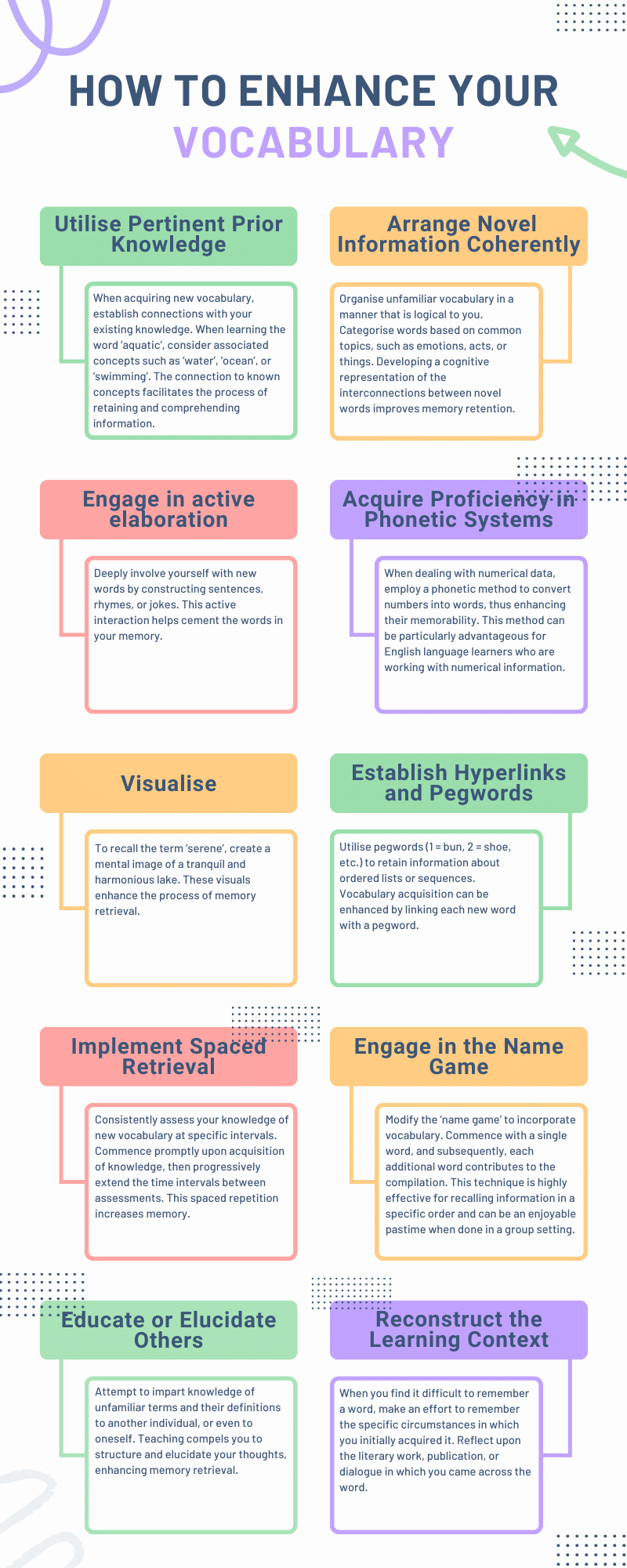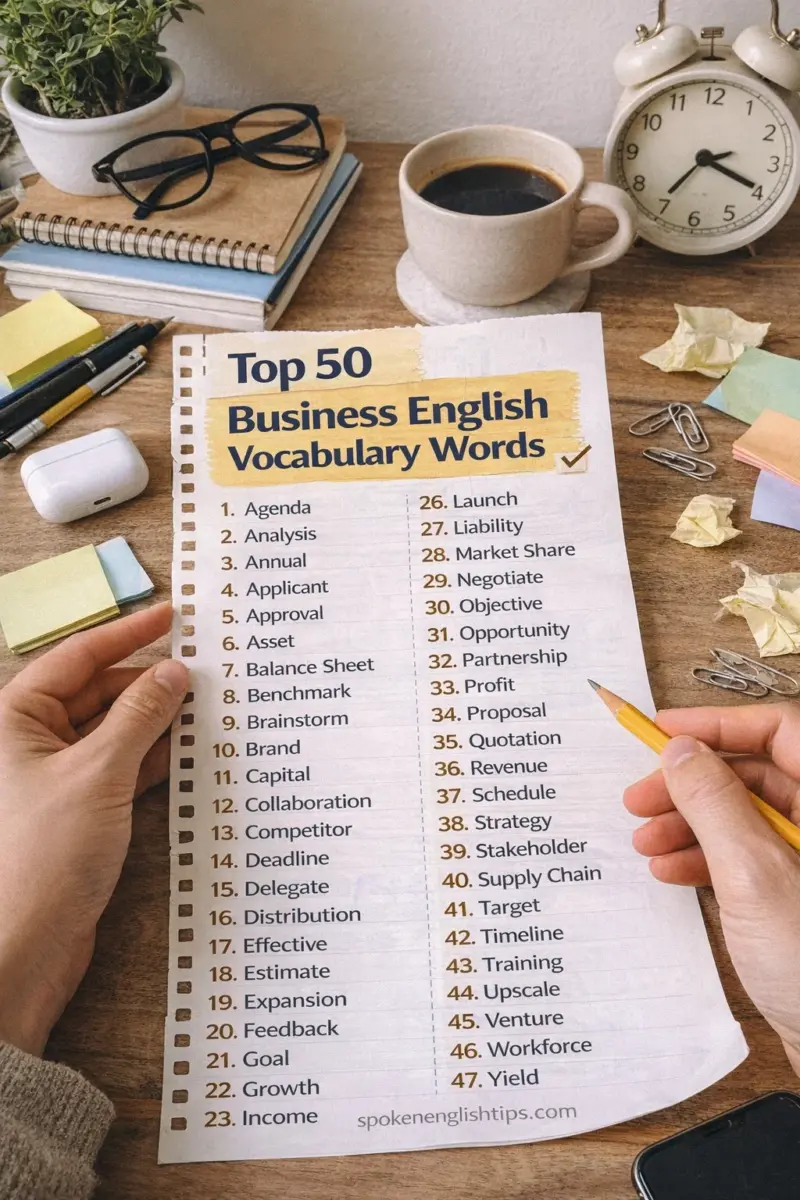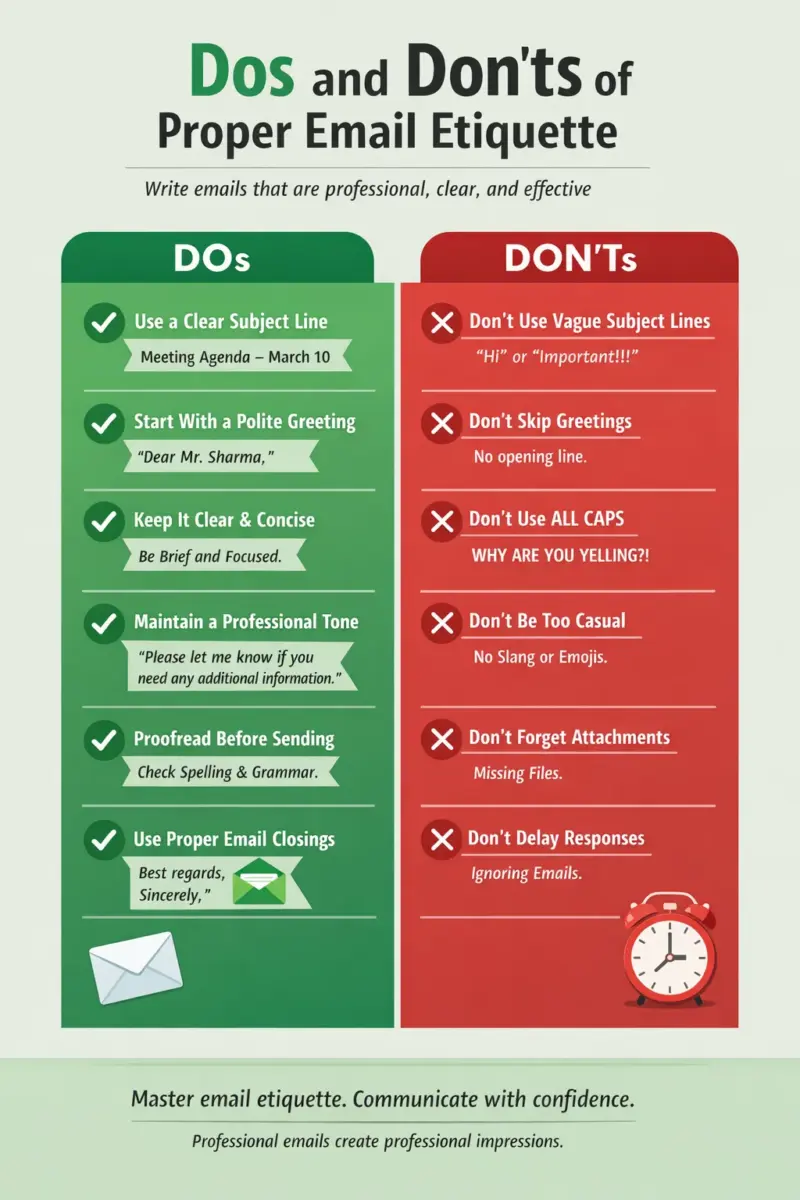Enhancing your English vocabulary and recall entails employing a blend of pragmatic methodologies and psychological principles. By extrapolating from an essay authored by Professor Peter Morris and Catherine Fritz, which delineates ten methodologies for augmenting memory, we can employ these tactics in a targeted manner to bolster vocabulary proficiency.

10 Tips to Enhance Your Vocabulary
1. Utilise Pertinent Prior Knowledge: When acquiring new vocabulary, establish connections with your existing knowledge. When learning the word ‘aquatic’, consider associated concepts such as ‘water’, ‘ocean’, or ‘swimming’. The connection to known concepts facilitates the process of retaining and comprehending information.
2. Arrange Novel Information Coherently: Organise unfamiliar vocabulary in a manner that is logical to you. Categorise words based on common topics, such as emotions, acts, or things. Developing a cognitive representation of the interconnections between novel words improves memory retention.
3. Engage in active elaboration: Deeply involve yourself with new words by constructing sentences, rhymes, or jokes. This active interaction helps cement the words in your memory.
4. Acquire Proficiency in Phonetic Systems for Numbers: When dealing with numerical data, employ a phonetic method to convert numbers into words, thus enhancing their memorability. This method can be particularly advantageous for English language learners who are working with numerical information.
5. Visualise: Associate new vocabulary with vivid mental imagery. To recall the term ‘serene’, create a mental image of a tranquil and harmonious lake. These visuals enhance the process of memory retrieval.
6. Establish Hyperlinks and Pegwords: Utilise pegwords (1 = bun, 2 = shoe, etc.) to retain information about ordered lists or sequences. Vocabulary acquisition can be enhanced by linking each new word with a pegword.
7. Implement Spaced Retrieval: Consistently assess your knowledge of new vocabulary at specific intervals. Commence promptly upon acquisition of knowledge, then progressively extend the time intervals between assessments. This spaced repetition increases memory.
8. Engage in the Name Game: Modify the ‘name game’ to incorporate vocabulary. Commence with a single word, and subsequently, each additional word contributes to the compilation. This technique is highly effective for recalling information in a specific order and can be an enjoyable pastime when done in a group setting.
9. Educate or Elucidate Others: Attempt to impart knowledge of unfamiliar terms and their definitions to another individual, or even to oneself. Teaching compels you to structure and elucidate your thoughts, enhancing memory retrieval.
10. Reconstruct the Learning Context: When you find it difficult to remember a word, make an effort to remember the specific circumstances in which you initially acquired it. Reflect upon the literary work, publication, or dialogue in which you came across the word.
In addition to these particular methods, it is crucial to fully engage oneself in the language to the greatest extent feasible.
Engaging in activities such as reading in English, participating in discussions, viewing English-language media, and regularly writing can all enhance one’s vocabulary and improve memory.
This immersion experience offers an authentic environment for acquiring and employing unfamiliar vocabulary, enhancing memory retention through hands-on application.
It is vital to establish attainable objectives and contemplate your advancement. Monitor the vocabulary you have acquired, commemorate your achievements, and pinpoint areas that need work.
It is important to keep in mind that acquiring vocabulary is a gradual procedure, and consistent practice is essential for retaining it in the long run.
Lastly, although mnemonic strategies and systematic practice are potent resources, it is important not to overlook the significance of uncomplicated, routine activities such as reading, chatting, and interacting with English media.
These activities offer a diverse and meaningful setting for learning that enhances more organized memory strategies.
To summarise, improving your English vocabulary and memory is a complex procedure that entails linking new material with prior knowledge, structuring and actively interacting with new terms, employing mnemonic techniques, and consistently practising recall.
By integrating these methodologies with language immersion and setting attainable objectives, you can substantially enhance both your lexicon and your capacity to retain novel terminology.


